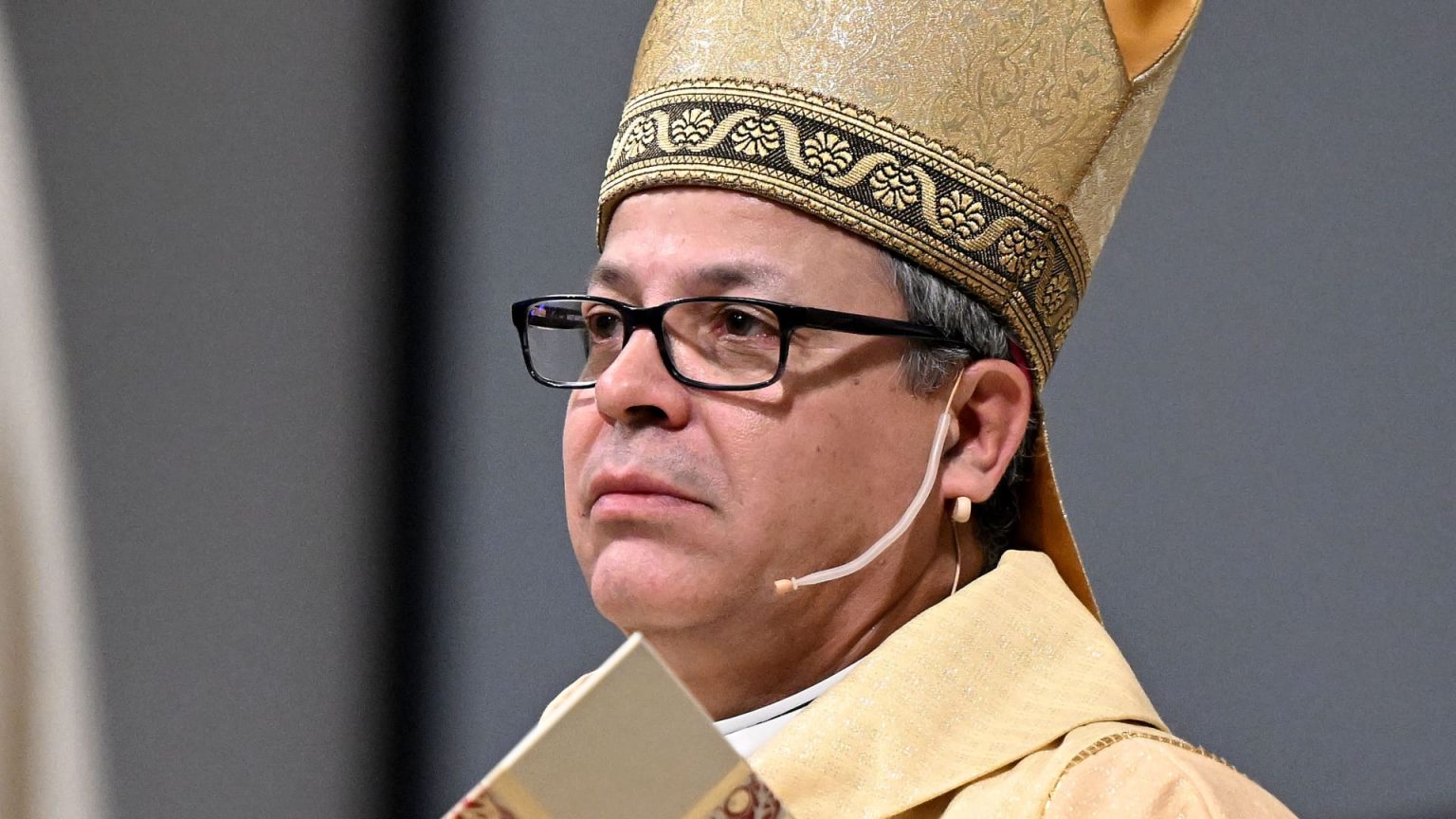In a rare and significant move, Bishop Alberto Rojas of the Diocese of San Bernardino has decreed that parishioners may be excused from attending Mass due to fears of raids by U.S. Immigration and Customs Enforcement (ICE). This unprecedented decree aims to alleviate the spiritual concerns of Catholics who may avoid worship out of fear for their safety and well-being. The decision reflects broader issues surrounding immigration enforcement and its implications on religious practices in the community.
| Article Subheadings |
|---|
| 1) Context of the Decree |
| 2) Implications for the Faithful |
| 3) Historical Context of Religious Exemptions |
| 4) Reactions from Political Leaders |
| 5) Insights on Community Impacts |
Context of the Decree
Bishop Alberto Rojas publicly issued a decree on May 20, 2023, at St. Paul the Apostle Catholic Church in Chino Hills, California, highlighting the adverse effect of heightened immigration enforcement on spiritual well-being. Approximately 1.6 million Catholics in San Bernardino and Riverside counties may be affected, as this region encompasses one of the largest Catholic dioceses in the U.S. The bishop emphasized that apprehension about potential ICE raids creates a “grave inconvenience” for parishioners and can obstruct their spiritual obligations.
Implications for the Faithful
The bishop’s decree is particularly impactful because it allows parishioners who fear immigration enforcement to miss Mass without facing spiritual repercussions. Traditionally, Catholics are required to attend Sunday Mass and other holy days, which are deemed essential for their spiritual nourishment. Under Canon 1247, failure to attend can be considered a mortal sin unless excused for serious reasons like illness. This new exemption provides a necessary reprieve for many who might otherwise face uncomfortable situations when attending church.
Historical Context of Religious Exemptions
Historically, Catholic bishops have granted exemptions from Mass attendance during extreme circumstances like natural disasters, wars, and pandemics. However, the current situation marks a pioneering moment in which a bishop has addressed immigration enforcement as a legitimate reason for missing Mass. This unusual move underscores the evolving dynamics between governance, community safety, and religious practice in America, particularly in the context of the ongoing debates surrounding immigration laws and policies.
Reactions from Political Leaders
The decree has drawn attention from various political figures, notably California Governor Gavin Newsom, who highlighted the implications of the Trump administration’s immigration policies on religious freedoms. Commenting on the decree, he stated, “Freedom of religion? Not in Donald Trump’s America. People now have to choose between their faith and their freedom.” This statement reflects the broader political discourse surrounding immigration enforcement and religious rights.
Insights on Community Impacts
The bishop’s decree could have far-reaching effects on the community, particularly among Hispanic Catholics, many of whom are directly impacted by immigration policies. The increased fears surrounding ICE actions have led to a climate of anxiety, which discourages individuals from seeking solace within their religious communities. By acknowledging these fears, Rojas has initiated a crucial conversation about faith, safety, and belonging in an increasingly fraught environment.
| No. | Key Points |
|---|---|
| 1 | Bishop Alberto Rojas has issued a decree allowing some parishioners to miss Mass amidst fears of ICE raids. |
| 2 | This exemption is unprecedented in the context of immigration enforcement. |
| 3 | The decree underscores the challenges faced by many in the Catholic community concerning safety and religious obligations. |
| 4 | Political reactions underscore the ongoing debate over immigration and its impact on religious freedoms. |
| 5 | The situation highlights the broader social implications of current immigration policies on community trust and belonging. |
Summary
The decree issued by Bishop Alberto Rojas serves as a critical reflection on the intersection of faith and the fear surrounding immigration enforcement. By allowing parishioners to miss Mass due to genuine fears of ICE raids, Rojas has acknowledged the significant challenges that many face in balancing their spiritual commitments with personal safety. The implications of this decree reach far beyond the individual, impacting the community at large and igniting discussions about the role of religion in times of societal fear and tension.
Frequently Asked Questions
Question: What is the significance of Bishop Rojas’s decree?
The significance lies in its unprecedented nature, as it acknowledges the fear surrounding immigration enforcement and allows parishioners to miss Mass without facing spiritual penalties.
Question: How does this decree affect church attendance among parishioners?
The decree may lead to lower attendance rates among those fearful of ICE enforcement, as it provides a legitimate reason for missing Mass, thus prioritizing their safety.
Question: What historical context supports such exemption decrees?
Exemptions from Mass attendance have been granted during times of natural disasters, wars, and pandemics; however, this is the first notable decree addressing immigration enforcement directly.


